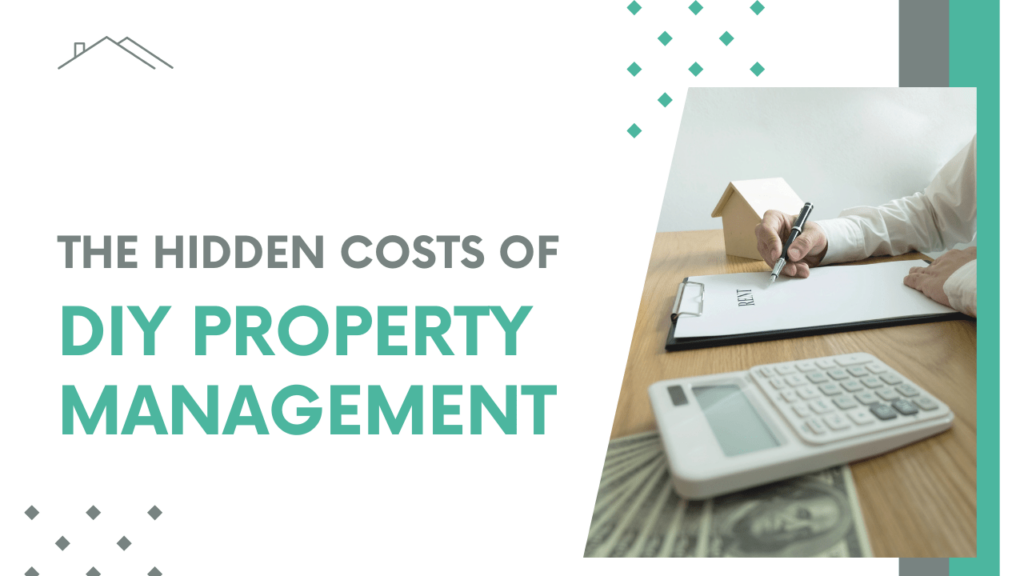
We can understand why managing your own rental property might seem like a smart way to save money.
At first glance, you think you’re protecting your income from a management fee.
Usually, however, it does not take long for landlords to realize the hidden costs associated with DIY property management—costs that can quickly outweigh the savings you think you’re collecting.
Time is Money
One of the biggest hidden costs of DIY property management is time. From screening tenants and collecting rent to arranging repairs and addressing tenant inquiries, the hours add up.
Consider how much your time is worth. If managing your property is taking you away from revenue-generating opportunities or other aspects of your life, this “hidden cost” is likely much higher than you’d think. Did you invest in a Fort Worth rental property in order to take on a part-time job? Probably not.
Legal and Regulatory Risks
Navigating the complexities of landlord-tenant laws, fair housing regulations, and The Texas Property Code can be confusing and frustrating. A simple oversight—such as improperly handling a tenant application or neglecting to return a security deposit on time—can result in costly lawsuits or fines.
Professional property managers are typically well-versed in these areas, ensuring your property stays compliant and protecting you from unnecessary legal risks. We keep you in compliance, and save you a lot of money on potential legal fees and penalties.
Inefficiencies in Tenant Screening
Bad tenants can cost landlords thousands of dollars. Without access to professional-grade tenant screening tools, you may miss red flags that indicate a risky applicant. Poor tenant screening increases your exposure to late rent payments, property damages, or even evictions—which come with a hefty price tag.
The cost of a bad tenant isn’t just financial; it’s emotional and time-consuming. Hiring a property manager with expert tenant-vetting processes can help you avoid these problems entirely.
Maintenance Costs Add Up
When you manage a property yourself, you’re responsible for resolving all maintenance issues. While some landlords enjoy tackling small DIY repairs, larger problems like plumbing, electrical malfunctions, or HVAC system breakdowns require professional services.
Many property management companies have established relationships with contractors and service providers, often securing bulk discounts not available to individual landlords. Additionally, they handle scheduling and follow-up, saving you both time and money.
When you go the DIY route, these negotiated rates and connections aren’t available to you, driving up your out-of-pocket costs for property upkeep.
Vacancy Expenses
One of the hidden dangers of DIY property management is extended vacancies. Filling a vacancy requires time, effort, and an understanding of the local rental market to price the property effectively. Without professional expertise, your property may sit vacant for longer than necessary, resulting in lost rental income.
Additionally, property management companies often have access to marketing tools and platforms that help secure tenants faster. Their ability to professionally capture and present your property to potential renters could mean weeks (or even months) less vacancy time compared to a DIY effort.
Save Money and Avoid Stress with Professional Property Management
 The hidden costs of DIY management add up quickly. A professional property management company can help you:
The hidden costs of DIY management add up quickly. A professional property management company can help you:
- Save time by handling tenant communications, repairs, and rent collection.
- Minimize legal risks by staying compliant with landlord-tenant laws.
- Reduce vacancies through strategic marketing and pricing.
- Gain access to trusted service providers at discounted rates.
- Avoid costly mistakes with expert tenant screening.
We know plenty of landlords who effectively manage their own rental homes. It’s not for everyone, though, and we’d love to talk through the options with you. Contact us at Trend Property & Management. We’re here to help with all your Fort Worth property management needs, and provide services throughout the surrounding Tarrant, Parker, Johnson, Hood, and Denton counties.




 Jason Zimmerman
Jason Zimmerman Jessica Schirmeister
Jessica Schirmeister